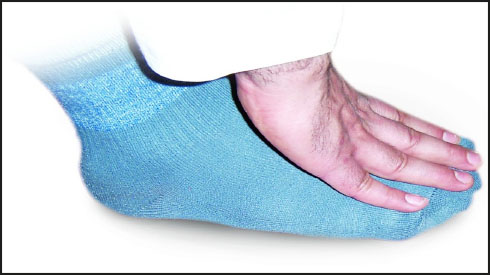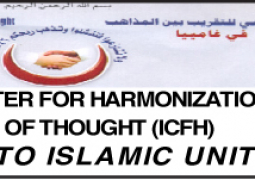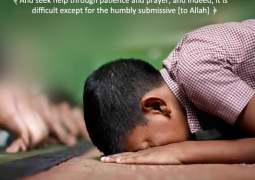
It is allowable to wipe over any wrapper or diseased or injured bodily part. There are many hadith on this point, and although they are all weak, their many chains strengthen each other, making them valid to talk about. One hadith, that of Jabir (quoted earlier), relates a story about a man who was on a journey and suffered an injury. While he slept, he had a wet dream, after which he asked his companions if he could perform tayammum. They said he could not, so he made ghusl and died because of it. When that was mentioned to the Prophet, he said “They killed him, may Allah kill them. Do you not ask about what you do not know? ... It would have been enough for him to perform tayammum and drop a little water over his wound or else wipe it, then to wipe it and wash the rest of the body.” This is related by Abu Dawud, Ibn Majah, ad-Daraqutni and Ibn as-Sakin, who classified it as sahih. Ibn ‘Umar used to do this.
In fact, it is obligatory to wipe over such casts or wrappers in ablution or ghusl instead of washing the injured parts. This must be done even if he has to heat the water. But, if he believes that this would harm the diseased or injured part, or that his condition may worsen, or that his pain would increase, he may wipe the injured part with water. If he fears that this would also be harmful, he should wrap it and then gently wipe over it. It is not necessary for him to be in a state of purity while applying the cast or wrapper to be wiped. There is also no time limit for such wipings, for he can do so as long as his condition lasts. Removing the wrapper or cast nullifies the wiping, as does the final cure.
The Prayer of One Who Has no Means of Purifying Himself
Whoever cannot get water or soil may pray in whatever state he is in, and he will not have to repeat his prayer later. This is based on what Muslim related from ‘Aishah. She had borrowed some jewelry from ‘Asma and it broke (and fell). The Messenger of Allah, upon whom be peace, sent some people to search for it. The prayer time came and they had to pray without ablution. When they came to the Prophet, they complained to him and the verses of tayammum were revealed. Usaid ibn Huzhair said, “May Allah give you good recompense. Allah never reveals an order with respect to you except that He removes by it some hardship and gives the Muslims some benefit.” The companions prayed while in a state of impurity, but the Prophet did not admonish them nor did he order them to repeat their prayers. Says an-Nawawi, “That is the strongest statement of proof (on this question).”
Menstruation (Haizh)
In Arabic, the word for menstruation (haizh) literally means “running.” Here it refers to the discharge of blood during a woman’s state of health, not from giving birth or breaking the hymen.
Most scholars say that its time begins at the age of nine. If blood is seen before that age, it is not menstrual blood, but is considered to be putrid blood. As there is no evidence about when a woman stops menstruating, if an elderly lady finds blood flowing it is considered menstrual blood.
Requirements for blood to be considered menstrual
1 Dark. Once, when Fatimah bint Abu Habash had a prolonged flow of blood, the Prophet told her, “If it is the blood of menstruation, it will be dark and recognizable. If it is that, then leave the prayer. If it is other than that, then make ablution and pray, for it is only due to a vein.” This is related by Abu Dawud, an-Nasa’i, Ibn Hibban and ad-Daraqutni, who said all of its narrators are trustworthy. Al-Hakim also related it, and said that it meets Muslim’s standards.
2 Red. It is the original color of blood.
3 Yellow. It is a liquid, like pus.
4 A muddy color. It is an intermediate color between black and white, like dirt.
Malik and Muhammad al-Hassan (and al-Bukhari in mu’allaq form) recorded that women would send ‘Aishah small boxes with yellow-stained cotton, and she would tell them, “Do not be in haste until you see the pure white cotton.” If the discharge is yellow or muddy during the days of menstruation, it is to be considered as part of the menses. During other days, it is not regarded as such. Umm ‘Atiyyah said, “After we were pure, we did not consider the yellow or muddy discharge to be anything.” This is related by Abu Dawud and al-Bukhari, but without the words “...after we were pure.. .”
There is no stated minimum or maximum length of time for the menses
All statements dealing with this topic have no sound backing. If a woman has a customary length of time for her menses, she should according to it. Umm Salamah asked the Prophet about a woman with a prolonged flow of blood. He said, “She should look for the number of days and nights that she usually has her menses and the time of the month during which it occurs. Then she should leave the prayer (during those days, and then afterwards) perform ghusl, tie something around her private part and pray.” (Related by “the five,’’ except for at-Tirmizhi.) If she has no customary period to go by, then she can try to distinguish between the different types of blood. This practice is based on the previously quoted hadith of Fatimah bint Abu Hubaish, which states that menstrual blood is distinguishable and well-known to women.
All scholars agree that there is no minmum or maximum time limit between two menstrual periods. Some say that the latter period is fifteen days, while others say it is three days.
Post-Childbirth bleeding
Such bleeding occurs after the birth of a child, regardless if the child survived the birth or not. This type of bleeding has no minimum duration, for it could stop right after the birth, or there could even be no blood. Therefore, her confinement would end and she would be obliged to fast, pray, and so on. The maximum duration is forty days. Said Umm Salamah, “During the lifetime of the Prophet, the post childbirth woman would be in confinement for forty days.” (Related by “the five,” except for an-Nasa’i.)
After recording the hadith, at-Tirmizhi states, “The knowledgeable companions, the following generation and those that came later agree that a woman experiencing post-childbirth bleeding had to stop praying for forty days unless her blood stopped. If her bleeding stops before that time, she is to make ghusl and start praying. If she sees blood after forty days, most scholars say that she is not to stop praying.”
To be continued




